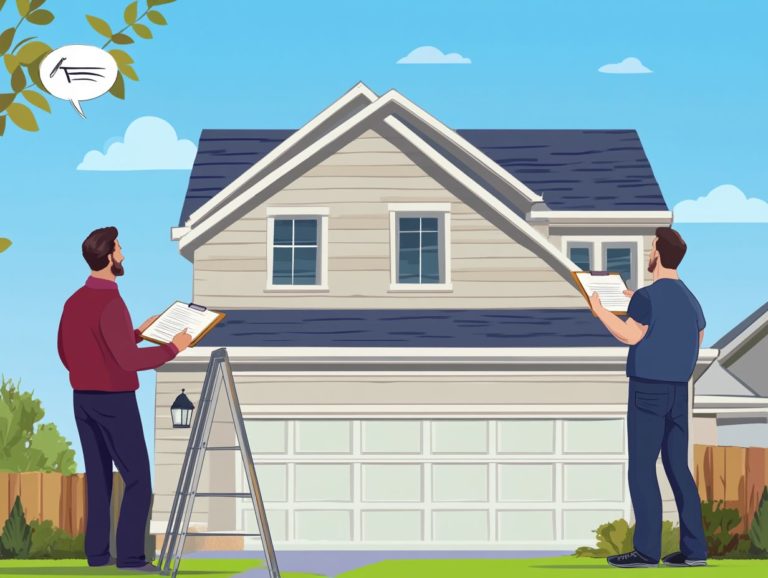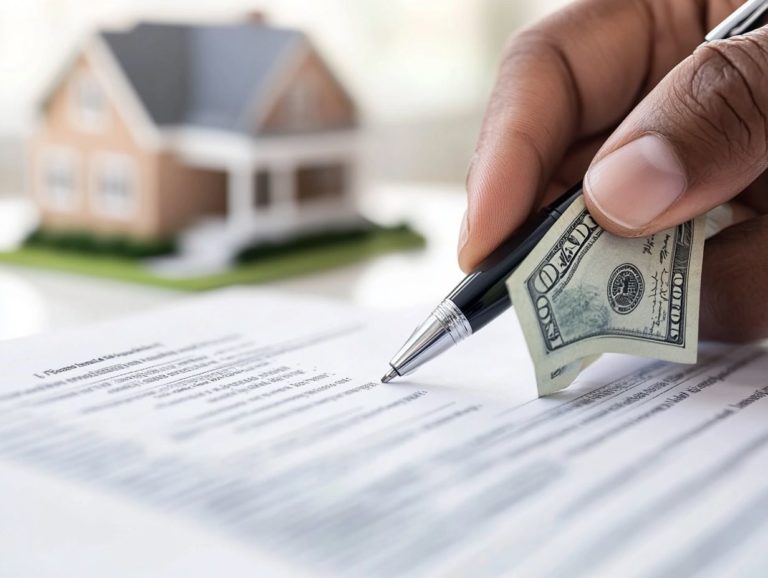How to Handle Mold Issues Before Selling?
Mold issues can completely derail property sales and substantially affect property values. Grasping effective management strategies is essential.
This article delves into the signs and symptoms of mold growth, ways to fix mold problems, and the associated costs of addressing these issues. It also offers practical tips for preventing mold before selling, along with the importance of legal disclosures to potential buyers.
Whether you are a seller or a real estate professional, understanding these facets can pave the way for a smoother transaction.
Contents
- Key Takeaways:
- Mold Issues in Real Estate
- Spotting Mold: What to Look For
- Addressing Mold Issues
- Preventing Mold Growth
- Disclosing Mold Problems to Buyers
- Frequently Asked Questions
- What is the first step in handling mold issues before selling?
- Can I handle mold issues on my own?
- How much does it cost to handle mold issues before selling?
- What are the potential health risks associated with mold?
- Is it necessary to report mold issues to potential buyers?
- Can mold issues affect the sale of my home?
Key Takeaways:
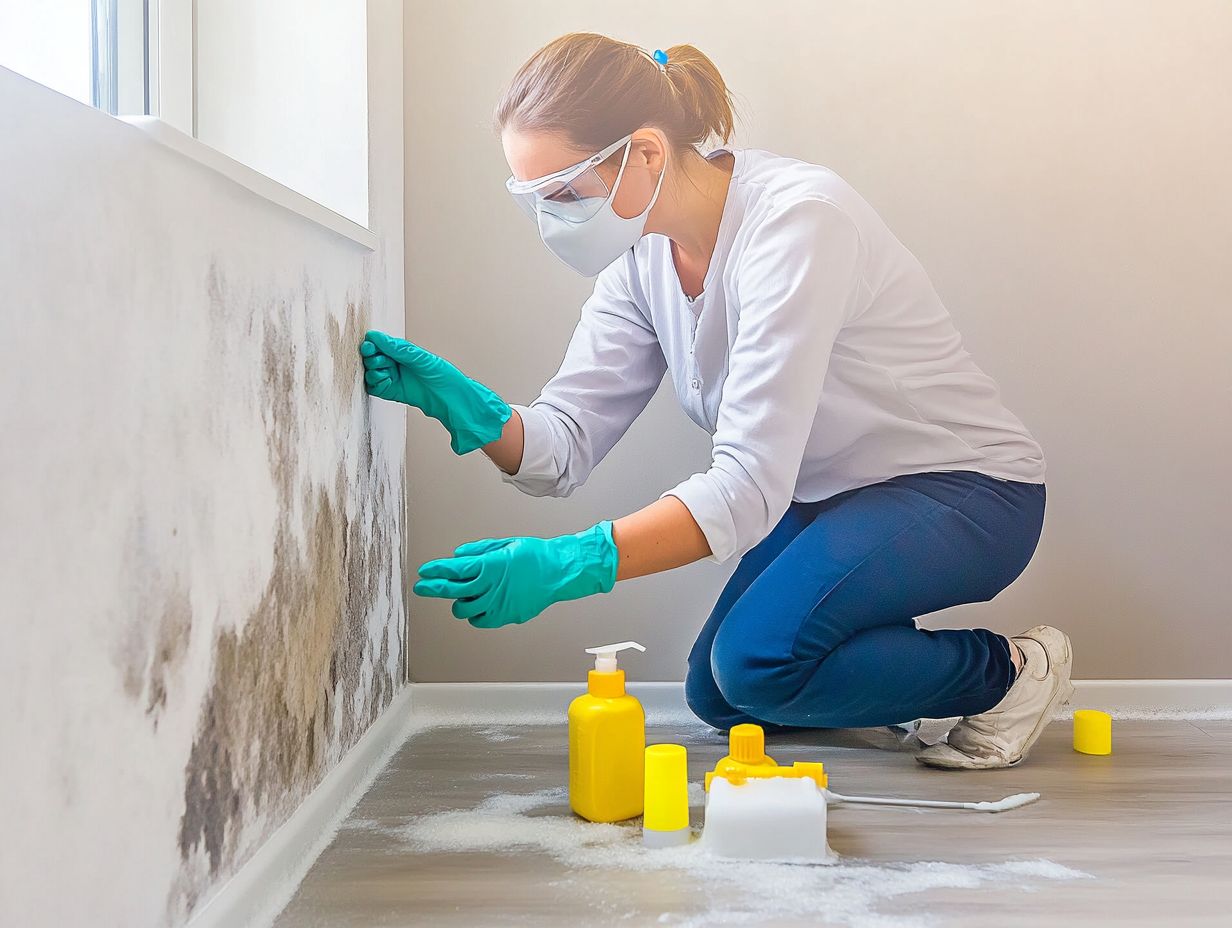
- Check regularly for signs of mold.
- Address mold issues promptly with professional help.
- Inform buyers about any known mold problems.
Mold Issues in Real Estate
Mold issues can hurt your property s value and affect the health and safety of potential buyers.
Whether in a crawlspace, attic, or other hidden areas, mold brings serious health risks and can expose sellers to legal liabilities if not disclosed.
As a buyer, you re likely more vigilant about mold, often insisting on professional inspections to gauge a home s condition.
Documenting previous mold concerns is now a priority, ensuring thorough clean-up to preserve the property s integrity.
The Impact on Property Value and Sale
The presence of mold can significantly lower your property s value and hurt its appeal to buyers.
This unwanted growth raises red flags during inspections, causing buyers to view the home as a potential health hazard.
Health issues linked to mold can easily turn away interested parties. Act now to protect your property and health!
If left unresolved, mold issues may complicate insurance claims swift action is crucial. Remediation costs can vary widely, from a few hundred to several thousand dollars, depending on the damage.
Partnering with a reputable remediation company can help mitigate value loss, ensuring affected areas are treated properly and restoring buyer confidence.
Spotting Mold: What to Look For
Spotting mold problems requires vigilance in recognizing specific signs and symptoms that may indicate this health hazard is lurking in your home, such as in the crawlspace and attic.
Signs and Symptoms of Mold Growth
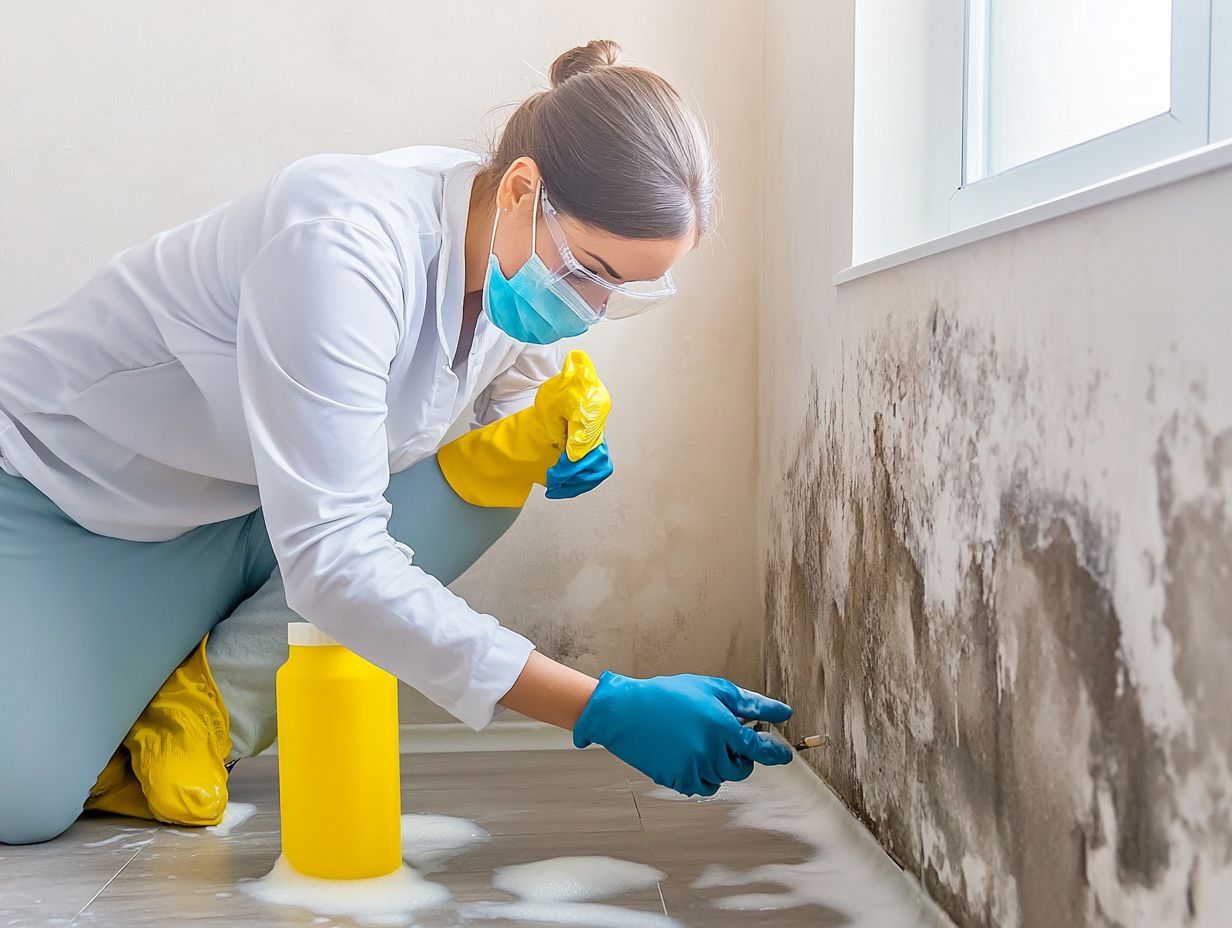
Recognizing the signs of mold growth is essential for homeowners. Neglecting these signs can lead to serious consequences for your property and everyone living in it.
Common symptoms include:
- Respiratory issues coughing, sneezing, and difficulty breathing especially for those with asthma or other conditions.
- Allergic reactions like itchy eyes, skin rashes, or sinus congestion.
Visually, watch for dark spots or patches of mold on walls, ceilings, and in damp areas like bathrooms and basements where humidity gathers.
Moisture issues, such as leaks or condensation, can worsen mold growth, heightening risks of structural damage and long-term health problems.
Addressing Mold Issues
Addressing mold issues effectively requires understanding various cleanup methods, awareness of potential costs, and engaging professional services.
This ensures that the problem is resolved safely and thoroughly, safeguarding your environment and peace of mind.
Don t let mold ruin your sale! Contact a professional today.
Remediation Techniques and Costs
Various remediation techniques are available to tackle mold problems, each accompanied by costs that can vary widely depending on the level of contamination and the affected area. It s essential to navigate these options thoughtfully to select the solution that best aligns with your specific needs.
Common strategies include:
- Dry ice blasting
- Chemical treatment
- HEPA vacuuming (which uses high-efficiency particulate air filters to trap tiny mold spores)
Each method has its pros and cons. For example, dry ice blasting is highly effective for removing surface mold but can be more expensive than traditional methods, often costing between $1,500 and $4,000 depending on the extent of the infestation.
Factors such as the type of mold present whether it s a harmless variety or a more dangerous species like black mold can significantly impact overall pricing. By engaging certified remediation professionals, you can ensure thorough assessments and effective treatments, making this investment a wise decision for your health and property protection.
Preventing Mold Growth
Preventing mold growth is crucial for homeowners, especially if they are contemplating selling their property. Not only does it protect health, but it also boosts the marketability of the home, making it more appealing to prospective buyers.
Tips for Mold Prevention Before Selling
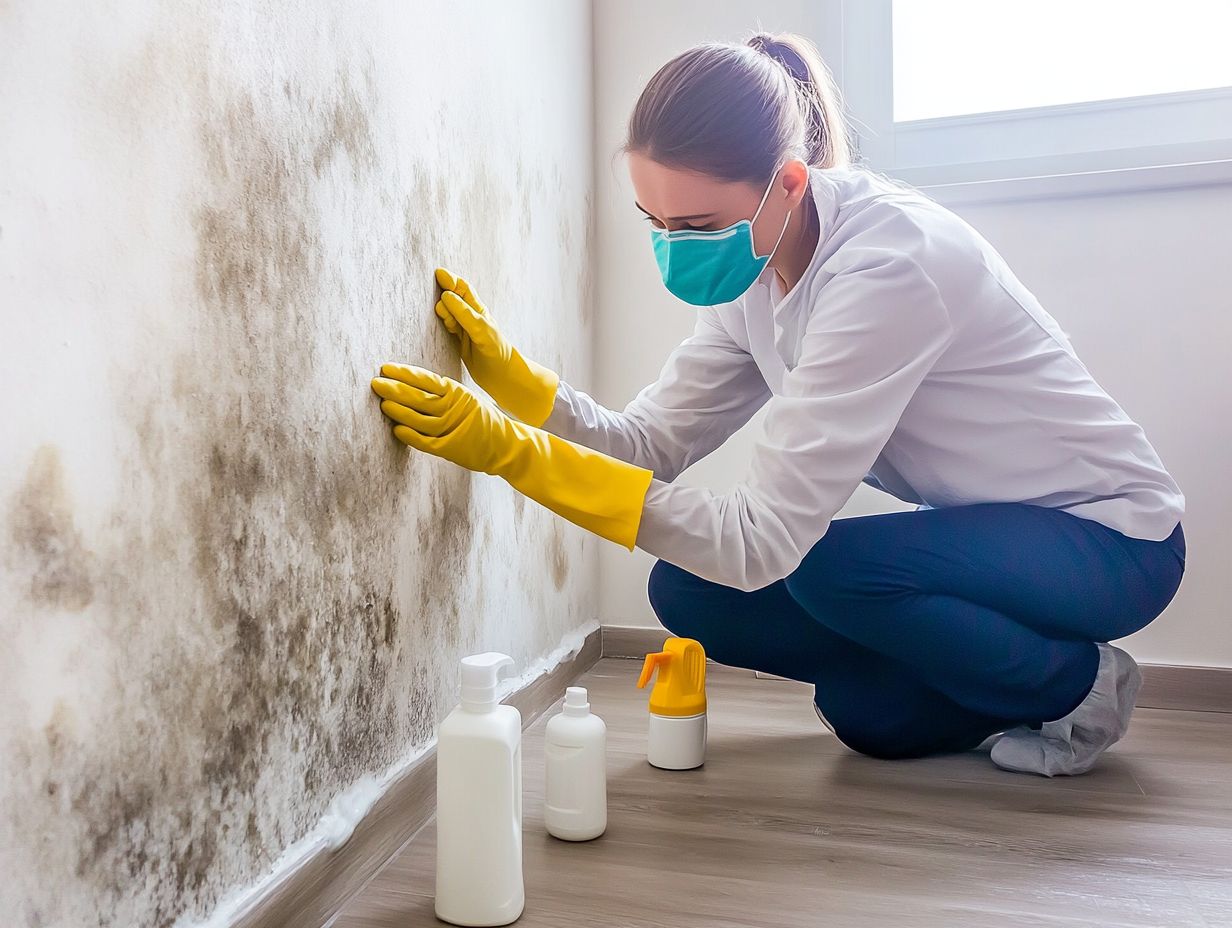
Before you decide to sell your home, adopting effective mold prevention strategies can significantly minimize the risk of mold problems. This ensures a smoother transaction and provides peace of mind for prospective buyers.
Conducting regular inspections helps you identify conditions conducive to mold growth early on. Addressing moisture issues promptly is key; for instance, leaky pipes or damp basements should be repaired at the first sign of trouble.
Implementing proper ventilation techniques, such as installing exhaust fans in high-moisture areas like kitchens and bathrooms, helps maintain an optimal environment. These proactive measures create healthier living spaces and enhance the overall appeal of your property.
This could lead to quicker sales and potentially higher offers. Take action now! Investing in mold prevention can lead to major benefits.
Disclosing Mold Problems to Buyers
Disclosing mold issues to potential buyers is not just about being ethical; it is often a legal requirement in numerous jurisdictions. This underscores the critical importance of transparency in real estate transactions, ensuring that all parties are well-informed and protected.
Legal Requirements and Best Practices
Understanding the legal requirements and best practices for mold disclosure is crucial for you as a seller to avoid potential pitfalls in real estate transactions. With the rising awareness of health risks associated with mold, navigating a complex landscape of property condition laws that vary by state is essential.
These laws often require you to fully disclose any known mold issues, protecting buyers while also mitigating your own liability. Failing to comply can lead to serious repercussions, including lawsuits or financial penalties.
Thus, it s vital for you to conduct thorough inspections and keep detailed records of any mold assessments or remedial actions taken. By communicating transparently with potential buyers, you can foster trust and ensure a smoother transaction process, all while highlighting the importance of mold awareness in today s real estate market.
Frequently Asked Questions
What is the first step in handling mold issues before selling?
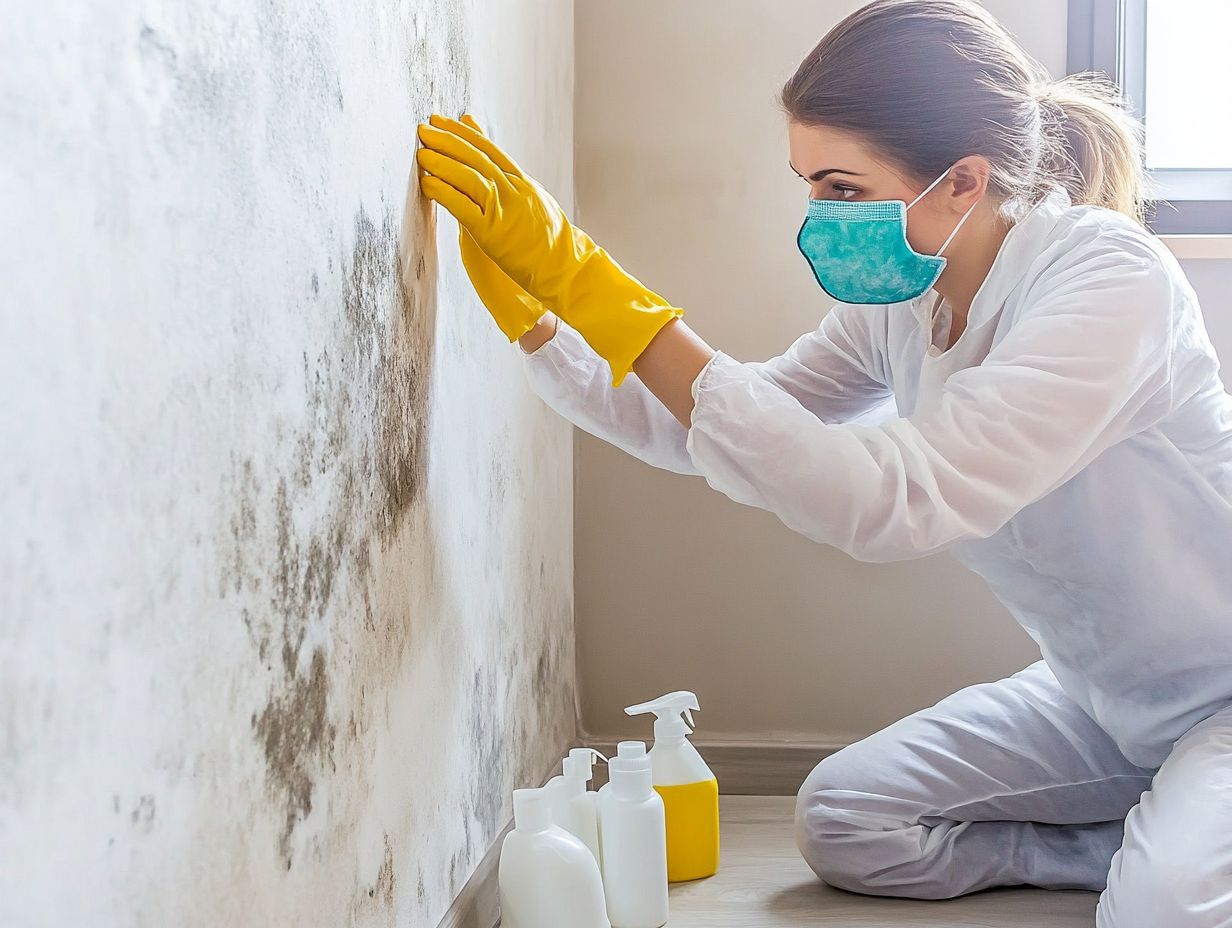
The first step in handling mold issues before selling is to have a professional mold inspection done. This will help determine the severity and extent of the mold problem.
Can I handle mold issues on my own?
It is not recommended to handle mold issues on your own, as improper removal can worsen the problem and potentially be a health hazard. It is best to hire a professional mold remediation company.
How much does it cost to handle mold issues before selling?
The cost of handling mold issues before selling will vary depending on the extent of the mold problem and the size of the affected area. On average, the cost can range from $500 to $6,000.
In conclusion, addressing mold issues proactively is essential not just for compliance but also for protecting your investment. Contact a professional for mold inspections today to ensure your property is ready for sale!
What are the potential health risks associated with mold?
Mold can cause respiratory issues, headaches, and allergies. It can lead to serious health problems if not addressed.
Is it necessary to report mold issues to potential buyers?
Yes, you must report any known mold issues to potential buyers. Not doing so can lead to legal problems and financial consequences.
Can mold issues affect the sale of my home?
Yes, mold can seriously impact your home’s sale. Buyers may hesitate if they know about mold, and it can lower your property’s value.
Act now to protect your investment!

